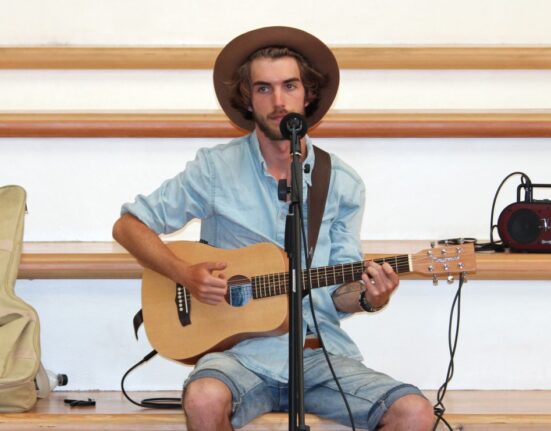Ngũgĩ wa Thiong’o, a man whose name resonates with the rhythm of African storytelling, was not just a writer; he was an activist, scholar, and a voice for change. Born in 1938 in Kamiriithu near Limuru, Kenya, Ngũgĩ’s journey through life was marked by a deep commitment to celebrating African culture and challenging oppressive systems.
Education was the cornerstone of Ngũgĩ’s early years. He walked the corridors of Kamandura and Kinyogori primary schools before finding himself at Alliance High School in Kenya where he completed his studies in 1958. His hunger for knowledge led him to Makerere University College in Uganda where he majored in English before pursuing further studies at the University of Leeds in the UK.
His literary career unfolded like a tapestry woven with threads of resilience and cultural pride. Ngũgĩ initially wrote in English but later embraced his native Gikuyu language as a tool for promoting African languages and traditions. His literary repertoire includes masterpieces such as “Weep Not, Child” (1964), “The River Between” (1965), “A Grain of Wheat” (1967), “Petals of Blood” (1977), “Devil on the Cross” (1980), “Matigari” (1986), “Wizard of the Crow
” (2006), and his latest work “
The Perfect Nine
” (2020).
In his seminal work, “
Decolonising the Mind
” (1986), Ngũgĩ passionately advocated for the use of African languages in literature to break free from colonial shackles. His prison memoir, “
Wrestling with the Devil,” written in 2018, reflects on his incarceration and underscores the pivotal role literature plays in resistance against oppression.
Ngũgĩ’s pen wielded not only stories but also political activism that stirred echoes across continents. His bold critiques of colonialism and post-independence governments landed him behind bars without trial after his play ‘Ngaahika Ndeenda’ caused uproar among authorities. It was during this period of detention that Ngũgĩ found solace in writing in Gikuyu—an act that marked a transformative shift in his approach to literature.
Despite facing adversity head-on, Ngũgĩ continued to soar academically. From roles at prestigious institutions like the University of Nairobi to being a Distinguished Professor at New York University and other esteemed universities, he shared his wisdom with aspiring minds eager to grasp the essence of African literature and social justice.
Accolades adorned Ngũgĩ’s illustrious career like jewels on a crown. Nominations for esteemed prizes like the Nobel Prize in Literature highlighted his profound impact on global literary landscapes. The International Booker Prize longlisted him for ‘The Perfect Nine’ in 2021 while various universities bestowed honorary doctorates upon him—a testament to his intellectual eminence.
Ngũgĩ wa Thiongo’s legacy is not confined within pages but extends into classrooms where young minds are inspired by his unwavering dedication to preserving language identity and advocating for social equity through storytelling. His courage reverberates through generations as writers pick up their pens emboldened by his belief that words have power—power to challenge norms, reclaim narratives, and ignite revolutions.
As we bid farewell to this literary giant who transitioned from this world on May 28th,
2025
in Buford Georgia USA at age
87
his voice lingers on—a timeless echo urging us all to embrace our roots,
defend our truths,
and let our stories be heard.
So let us keep reading,
quoting,
teaching,
and loving Ngugi Wa Thiongo—for though he may rest,
his words will forever dance across hearts hungry for change.









Leave feedback about this